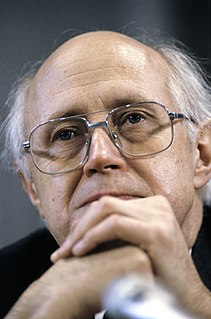A Quote by Sam Lipsyte
The translator has to be a good writer. The translator has to hear music too. And it might not be exactly your music because the translator needs to translate the music. And so, that is what you are hoping for: a translator who gets what you are doing but who also gets all the ways in which it won't work in the new language.
Related Quotes
To me a translator is very, very important. If the fixer is also the translator, so much the better. I have known photographers who didn't speak the language and would work in a place for weeks without one, getting by on common sense and smiles. But how many situations did they miss because they couldn't talk to someone and get the back story on details, small daily life things, etc.




































